Big bucks in funny business
Updated: 2015-04-09 08:24
By Xu Fan(China Daily USA)
|
|||||||||
With the third installment in the hugely successful Lost film series preparing to hit cinemas, its backers are anticipating healthy box office returns. Xu Fan reports.
With zealous predictions that its box office will rake in a record 3 billion yuan ($479.7 million), the producers of the upcoming comedy Lost in Hong Kong have raised eyebrows.
"We earned 3.16 billion yuan with the last installment. It's quite possible one blockbuster will bring in so much (revenue)," Wang Changtian, president of Chinese entertainment giant Enlight Media, the movie's investor and distributor, says at a media event to promote the third installment of the Lost trilogy on March 30.
Wang's confidence may come from the overwhelming commercial success of the first two Lost series: Lost on Journey (2010) and Lost in Thailand (2012).
The series has been described as a Chinese version of John Hughes's 1987 film Planes, Trains and Automobiles. It depicts the travels of two mismatched companions. Lost on Journey was a dark horse in 2010's summer season but ended up taking in nearly 50 million yuan.
When the film's lead actor Xu Zheng, an up-and-comer then and an A-lister now, made his directorial debut with 2012's Lost in Thailand, there was a whiff of revolution. The film beat Life of Pi (the film that won Ang Lee the 2013 Academy Award for best director) and multiple homegrown big-budget blockbusters.
With a record box office revenue of 1.26 billion yuan, the 50 million yuan production has been listed as one of highest-grossing movies in the history of Chinese cinema.
The question is: Can the success of such high-return productions be copied?
An analytical report released by major movie studios argues that the Lost model may work as a formula in China's fast-expanding market.
Around half of the five highest earning movies from 2012 to 2014 are comedy blockbusters. The highest return rates in the past two years were war-comedy The Chef, The Actor, The Scoundrel, with a 967 percent return on investment in 2013, and the film Where are We Going? Dad, adapted from a hit TV show of the same name, with an 898 percent return in 2014, according to a February report released by Xueqiu.com, a financial news website.
Box office statistics show that the top three highest-earning homegrown blockbusters are all comedies. In the past two years, Stephen Chow's Journey to the West: Conquering the Demons took the top spot, grossing 1.24 billion yuan, followed by Ning Hao's Breakup Buddies at 1.17 billion yuan, and Chow Yun-fat's The Man From Macao II at 969 million yuan.
However, insiders contacted by China Daily have mixed views on the rise of comedies.
"According to our investigations, the mainstream moviegoers are those in their 20s and 30s. They are stressed and are struggling for a better life in big cities. So most of them don't want to pay money to see something too serious," says Niu Song, ethnic film exhibition chairman with the Beijing International Film Festival.
"The viewers want to laugh in the theaters and to relax on the weekend. That may explain why comedies are becoming more popular."
His comments are echoed by Cheng Jiaqi, managing director of Shanghai-based Fundamental Films, which has a close connection with Hollywood and European film makers.
"Lost in Thailand works as a good case for commercial productions. The crew has accurately calculated and designed the number and timing of gags based on viewers' reaction," she says. "Movies are born as a commercial production. The more you know the market, the more you get from it."
While many see comedies as a future trend, others have raised concerns the genre can be easily filled with shallow jokes and lacks core values.
"It's hard to predict an upcoming sequel's box office based on its previous installments' performance. Numerous cases in history show that movies with enormous expectations can suffer huge losses," says Zuo Heng, deputy director of cinema studies at the China Film Archives.
"Most of the hit comedy blockbusters are a bit different from the traditional ones because of a close connection with fashion and style. Set in tourist destinations or filled with top brands, they show viewers the life they are dreaming of," he says.
"But such models are easily repeated and moviegoers will eventually get bored. The evergreen comedies are those that discover the ridiculous side of life and humanity. They not only make people laugh but also push them to think."
Contact the writer at xufan@chinadaily.com.cn
|
Director/actor Xu Zheng and actress ZhaoWei lead the upcoming comedy Lost in Hong Kong. |
|
Xu Zheng (left) andWang Baoqiang play themain roles in Xu's 2012 directorial debut, Lost in Thailand. Photos Provided To China Daily |
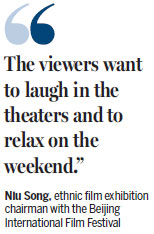
(China Daily USA 04/09/2015 page9)

 Last batch of Chinese peacekeeping infantry arrives in S.Sudan
Last batch of Chinese peacekeeping infantry arrives in S.Sudan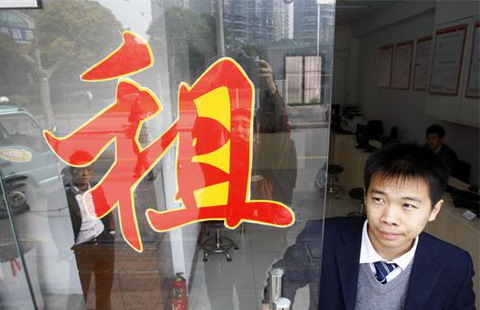
 With high property prices, is it OK to rent forever?
With high property prices, is it OK to rent forever?
 Top 7 glass producers in China
Top 7 glass producers in China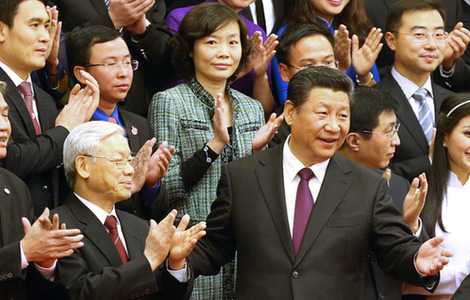
 China, Vietnam work to build ties
China, Vietnam work to build ties
 Louis Vuitton Series 2: Past, Present, and Future
Louis Vuitton Series 2: Past, Present, and Future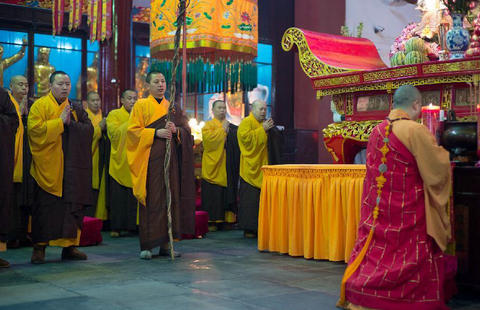
 Buddhist ritual held on Jiuhua Mountain in E China's Anhui
Buddhist ritual held on Jiuhua Mountain in E China's Anhui
 Photographer focuses lens on China's rail history
Photographer focuses lens on China's rail history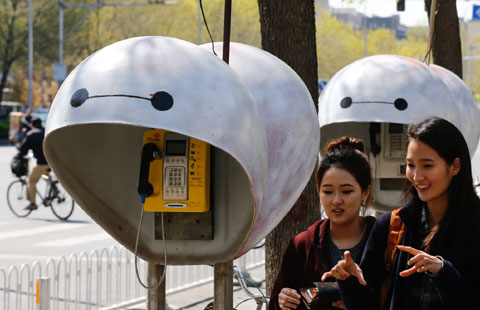
 Phone booths are given Baymax makeover
Phone booths are given Baymax makeover
Most Viewed
Editor's Picks

|

|

|

|

|

|
Today's Top News
Boston bomber convicted, may face death penalty
US mulls major arms sales to Egypt
Zhou trial likely to serve as model
Energy security, goodwill top Obama agenda in Jamaica visit
Chinese insurers invest in Boston Seaport site
Chinese billionaire buys vase for $14.7 million
Survey: China bests Japan on economic ties
World Bank welcomes AIIB
US Weekly

|

|









